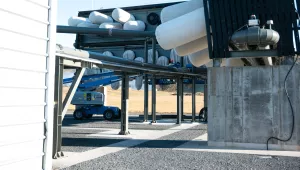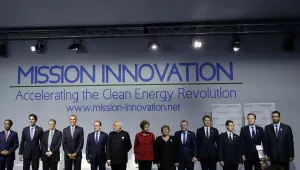Introduction
An interdisciplinary MIT faculty group decided to study the future of nuclear power because of a belief that this technology is an important option for the United States and the world to meet future energy needs without emitting carbon dioxide and other atmospheric pollutants. Other options include increased efficiency, renewables, and carbon sequestration, and all may be needed for a successful greenhouse gas management strategy. This study, addressed to government, industry, and academic leaders, discusses the interrelated technical, economic, environmental, and political challenges facing a significant increase in global nuclear power utilization over the next half century and what might be done to overcome those challenges.
This study was supported by the Alfred P. Sloan Foundation and by MIT's Office of the Provost and Laboratory for Energy and the Environment.
Deutch, John and John P. Holdren. “The Future of Nuclear Power: An Interdisciplinary MIT Study.” Massachusetts Institute of Technology, July 2003
The full text of this publication is available via Massachusetts Institute of Technology.







